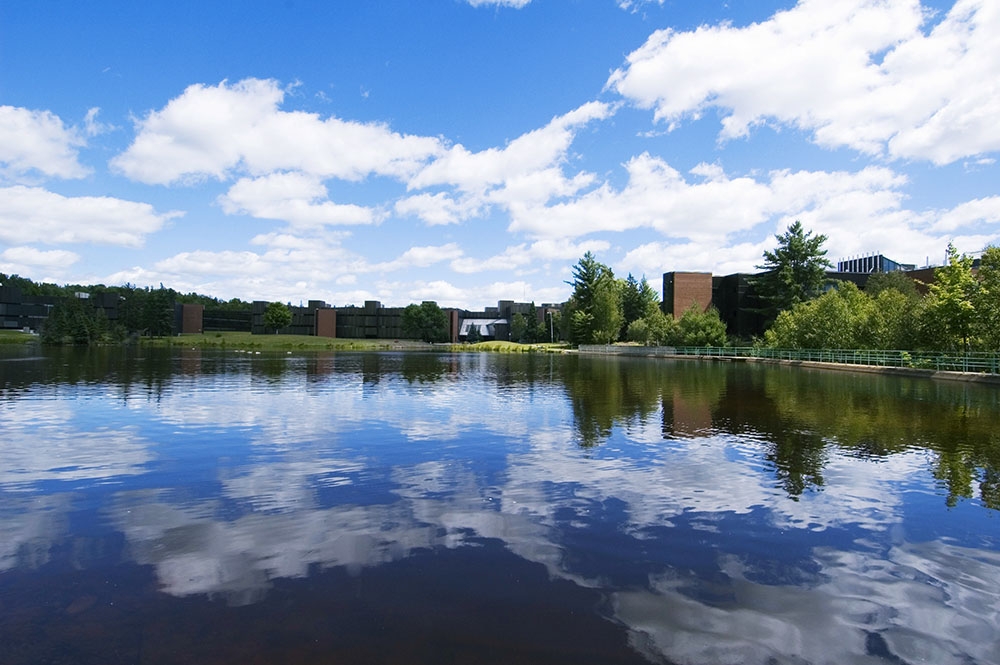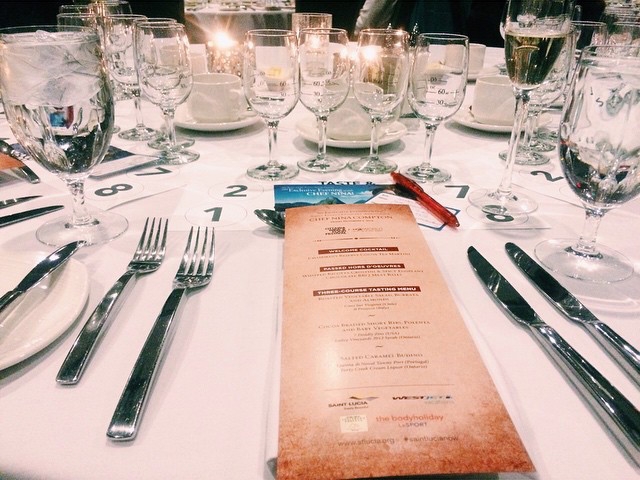
Nipissing University: Aboriginal Initiatives
Nipissing University, located in North Bay, is the perfect environment for learning. Nipissing has the benefit of smaller class sizes, more individual attention and specialized programs catering to students’ needs. For Aboriginal students in particular, though the Aboriginal Initiatives Office, Nipissing offers a unique and wide range of programs to help students succeed in both their scholastic and personal endeavours.
The Aboriginal Initiatives Office provides multiple resources and programs to students that support them in their studies all the while encouraging them to reach out and meet new people. Living up to its slogan, “Enji giigdoyang,” which translated from the Nipissing dialect, means “where we come to meet, discuss and talk about things,” Aboriginal Initiatives creates a friendly and accepting culture.
 “We are, first and foremost, here to help students thrive in whatever capacity we can make available,” explained the Office Director, Tanya Lukin-Linklater. That can be personal, academic or financial support. It will help students find resources outside of their program to help them achieve their goals. It is also there to answer questions of any prospective students and to show people around the school.
“We are, first and foremost, here to help students thrive in whatever capacity we can make available,” explained the Office Director, Tanya Lukin-Linklater. That can be personal, academic or financial support. It will help students find resources outside of their program to help them achieve their goals. It is also there to answer questions of any prospective students and to show people around the school.
The Aboriginal Initiatives Office also offers the Aboriginal Advantage Program, run by a team of Elders, Student Success Coordinators, faculty and staff. Working with students one- on-one, they support them with a specific emphasis on celebrating who they are as Aboriginal individuals.
The Program offers three areas of support: academic, personal and cultural. A tutoring service is provided as well as workshops for writing, grammar, computer and study skills. Students also have access to counselling, stress management and assistance in budgeting. Special guest speakers, sharing circles and personal discussions with Elders are also part of the program. Everything that any first-year student needs is covered. Organizers go above and beyond to make their students feel comfortable and confident in this community.
Many students feel that being a part of Aboriginal Initiatives allows them to interact more easily with others as well as make a difference in the surrounding community. In fact, building meaningful partnerships with Aboriginal communities is important to the Office.
One way it reaches out is through its Aboriginal Mentorship Initiative. Student volunteers travel around to high schools in the North Bay area. Together with the younger students, they work on a collective project that serves as a marker of Aboriginal culture in the school.
Anna Peltier is a Nipissing student who volunteers her time with the mentorship program. She says that some of the projects completed in the schools in the past have included building teepees, canoes or painting art murals.
“Part of what we do is about giving back to the community which is embedded in our programs,” Lukin- Linklater.
In fact, in March, the university hosted grade 11 and 12 students for a gathering, Debwendizon (translated to “believe in yourself”). The students were able to take part in short lectures, tour the campus and engage in different learning opportunities and activities. The two-day gathering ended with First Nation member and Anishnabemwin educator, Muriel Sawyer, providing a lesson on the importance of believing in oneself.
Another Aboriginal Initiatives program is the Biidaaban Community Service-Learning (BCSL). The focus is largely on enriching reading, writing and math skills in local youth. Working with nearby schools, not- for-profit organizations and First Nations communities, the program develops a sense of community service by creating relationships and partnerships among students, community organizers and administrators. In the last year alone, the university clocked about 13,000 volunteer hours across the province.
Jenna Demers, organized an after- school homework and games club through the BCSL and in partnership with the Children’s Aid Society. For her, this was a way to get involved in a leadership role and do something she is passionate about. This kind of experiential learning is unique to Nipissing and students truly benefit from the involvement.
Another remarkable aspect of the Aboriginal Initiatives Office is that it runs all year long. When other faculties and departments at the university slow down as they approach the summer months, the Office gears up for its Summer Education Programs. Offering options for youngsters, they have science, engineering and mathematics camps as well as a Youth Experience Program which include activities that vary from year to year. They also have different Diploma Programs in the summer such as the Native Classroom Assistant and Native Special Education Diploma Programs. This way, students are able to take advantage of the different school resources provided by Nipissing.
Lukin-Linklater noted that seeing students who have been involved in the programs graduate is one of her favourite parts of the job. “It’s so rewarding to see how positive it is for them to complete their degree,” she explained. “It’s phenomenal because I know that every time someone completes it, it’s a real success story and that will have a ripple effect in their communities and families.”
Students who are involved with the Aboriginal Initiatives Office find a sense of community and friendship and walk away with new skills as well. “We don’t expect them to take part in every program we offer because they are offered for different reasons,” said Lukin-Linklater. “But every student will take away something special and different.”













